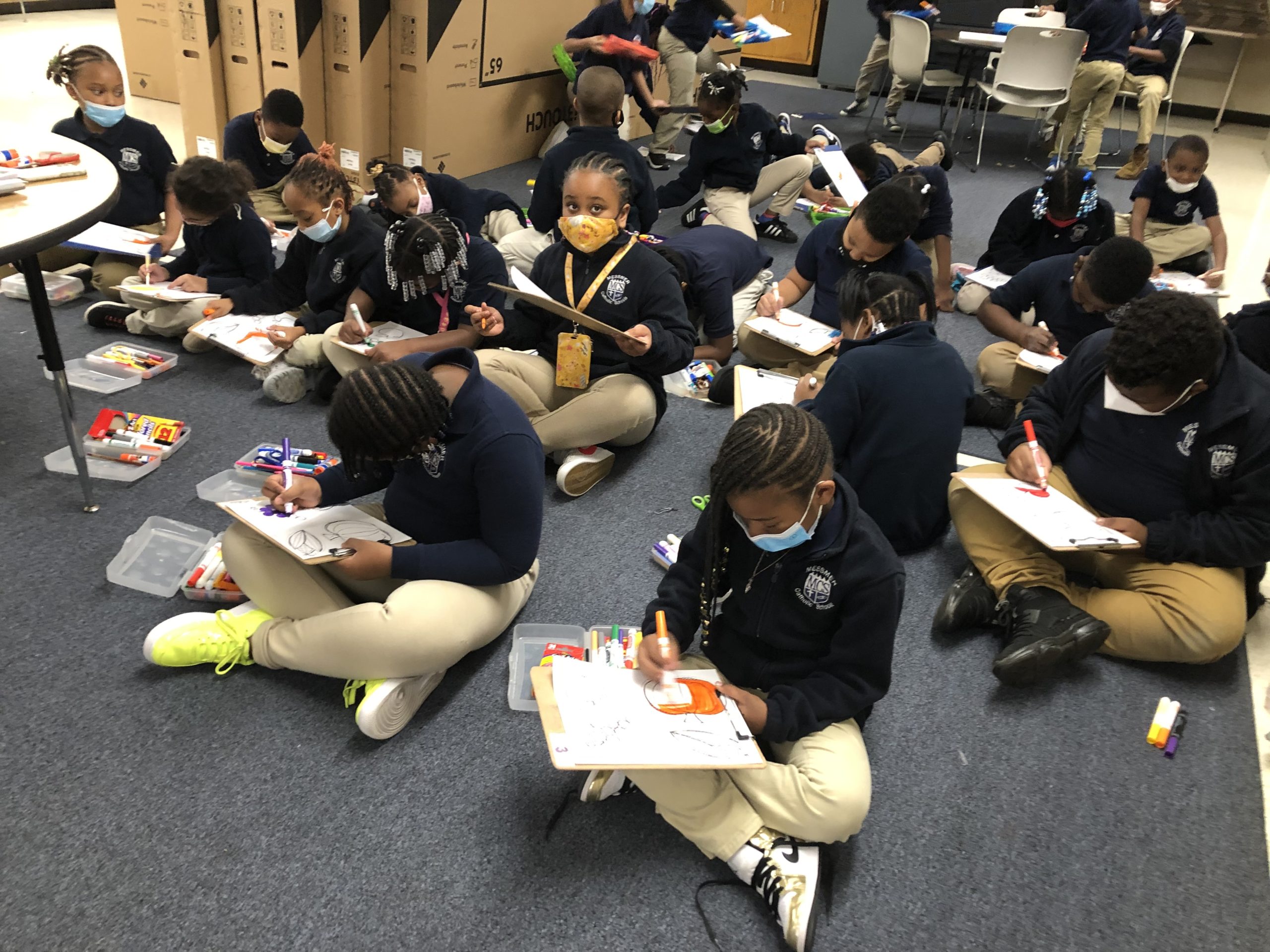
Thanks to $640,000 in grants from Bader Philanthropies, Messmer Saint Mary Catholic School will be better prepared to address student mental health issues, learning gaps intensified by COVID-19, and early preparation for STEM college and career readiness.
The grants are specifically intended to impact K-8 education instruction and learning readiness in the specific urban north side zip code where Messmer Saint Mary is located, said Lisamarie Arnold, director of admissions and community relations for Messmer Catholic Schools.
As the grant funding expands over a two-year process, the immediate concern will be utilizing designated funds for student mental health issues made worse during the pandemic.
“The program we can immediately implement is our partnership with SaintA to provide counseling and direct SEL (social emotional) support at Messmer Saint Mary. We have a person onsite from SaintA,” Arnold said.
SaintA serves 5,000 Wisconsin children, youth and adults each day, helping to build life skills, access needed resources and navigate systems of care. They are skilled at addressing the impact of trauma, preventing adversity and promoting resilience for those in their care. Located in Milwaukee, SaintA empowers individuals to overcome barriers to well-being, such as poverty, poor educational outcomes, unemployment and discrimination, to help them thrive.
“Many of our students come from a trauma-informed background. COVID-19, as well as virtual learning itself, have significantly impacted everyone’s mental health on some level, and many of our children who were struggling before the pandemic are struggling more now. Isolation, fear, lack of structure, loss of loved ones and even in some cases eviction have had an emotional toll on our families,” Arnold said. “Wisconsin has the largest gap of academic success between underserved students and those of means. All of our teachers will agree that students began this academic year behind. Most of the research concludes that students of color in high-poverty communities fell further behind their peers, exacerbating long-standing gaps in American education.”
For example, Arnold said a study recently released by McKinsey and Co. estimates the shift to remote education set white students back by one to three months in math, while students of color lost three to five months.
One of the many reasons for losing skills is attributed to students in K4 through first grade having limited usage skills for computers and lower attention spans for virtual learning. High school students frequently set aside their work and were tasked with helping their siblings with virtual learning. Some, according to Arnold, also helped manage households and worked to support their families.
“Our students are often first-generation college students and enter college with very limited exposure to careers pathways. As a result, they either spend too much time and money figuring out pathways in college or don’t finish because the chosen pathway was not aligned with their skill set,” she said. “Our pathway focus and strong dedication to career exposure prepare our students for success in both college and skilled trade careers.”
According to Jim Piatt, president of Messmer Catholic Schools, the grant funds from Bader Philanthropies will help them recapture their momentum from before the pandemic forced them into virtual classrooms, which he explained exacerbated the learning gap.
“Now we can dedicate resources to student learning and mental health, and drive quickly to being a school that exceeds expectations for our students and families. All students can succeed in math. We will focus on project-based experiences for our children to perform in math and gain exposure to real and attractive job pathways,” Piatt said. “As educators, we understand from our experience that the optimum age to pique the interest of students in STEM careers is before the age of 12. With funding from the Bader grant, Messmer will accelerate its strategic planning in this direction. We already have the career-focused curriculum and community support in place at Messmer High School, and now we can fully embrace these efforts at our elementary school level.”
